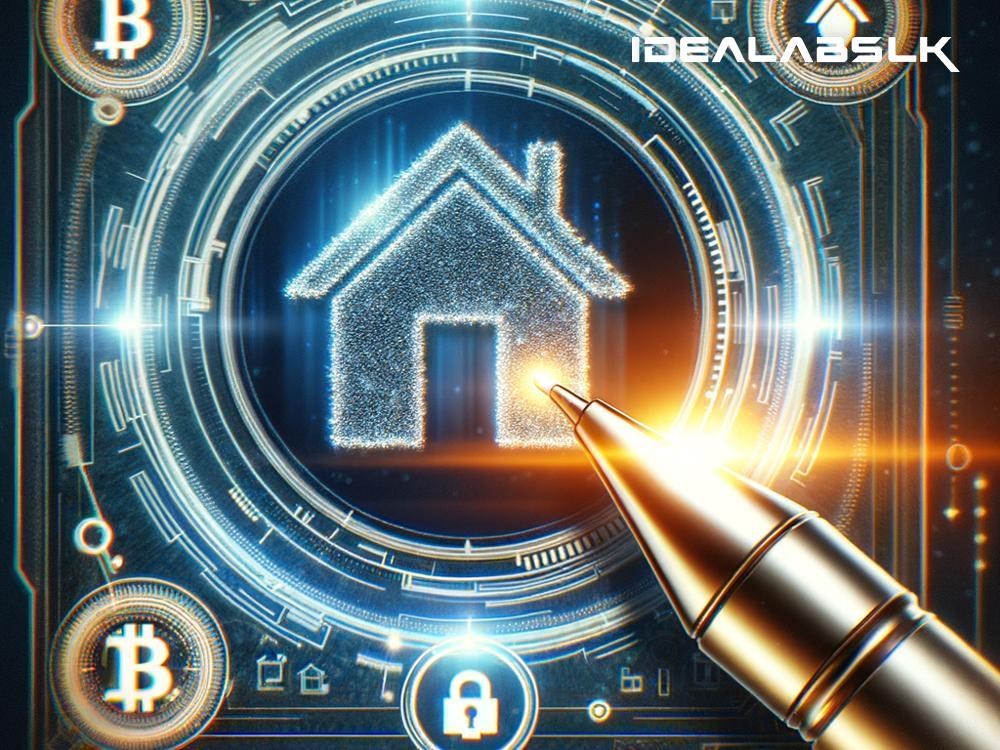Unlocking the Future: How Blockchain Revolutionizes Real Estate Mortgages and Loans
In today's fast-moving world, technology is reshaping every aspect of our lives, and the real estate sector, especially mortgages and loans, is no exception. Among the tech marvels making waves, one standout innovation is blockchain. Though it first gained fame as the backbone of cryptocurrencies like Bitcoin, blockchain's potential stretches far beyond digital currencies. Let's dive into how this technology is revolutionizing real estate mortgages and loans, making processes more transparent, efficient, and secure in layman's terms.
What is Blockchain, Anyway?
Imagine a digital ledger that is completely secure, transparent, and tamper-proof, where every transaction is recorded and can be seen by anyone within the network. That's blockchain for you. It is a series of interconnected blocks (or data records) that are secure and cannot be modified or deleted. Each block contains a timestamp and transaction data, making it extremely reliable and trustworthy.
The Traditional Mortgage and Loan Process: A Quick Recap
Traditionally, getting a mortgage or loan for real estate involves a lot of paperwork, middlemen, and, frankly, headaches. From banks to real estate agents, and numerous legal hoops to jump through, the process can be daunting and time-consuming. The involvement of so many parties and steps also increases the likelihood of errors and fraud, not to mention the significant processing fees.
Blockchain to the Rescue
Now, let's see how blockchain swoops in and transforms this convoluted process into something sleeker and more streamlined.
-
Trust and Transparency: Since blockchain is a decentralized system, all the transactions are recorded and visible to every party involved. This means that everyone can see the history of a property, from past transactions to the current mortgage details, increasing trust among parties and reducing the chances of fraud.
-
Efficiency and Speed: Blockchain eliminates the need for many intermediaries such as the banks and brokers traditionally involved in mortgage and loan processing. With smart contracts — self-executing contracts with the terms of the agreement directly written into lines of code — the processing time can be reduced from weeks to just days or even hours.
-
Security Like Never Before: The secure nature of blockchain, with its cryptographic hash functions, ensures that once a transaction is recorded, it cannot be altered or deleted. This high level of security is particularly reassuring for both borrowers and lenders.
-
Cost Reduction: Given the reduced need for intermediaries and the faster processing time, the costs associated with obtaining mortgages and loans can significantly decrease. This makes the overall process more affordable for the borrower.
Real-World Impact and Challenges
Several startups and established companies alike are already experimenting with blockchain for real estate transactions. For instance, companies are exploring the tokenization of property, allowing people to own, buy, or sell fractions of property through blockchain, making real estate investment more accessible.
However, it's not all smooth sailing. The adoption of blockchain in real estate mortgages and loans faces hurdles, including regulatory challenges, as laws and regulations have yet to catch up with this new technology. Additionally, there's resistance from those who benefit from the status quo, not to mention the need for widespread technical understanding and adoption.
Looking Ahead
Despite the challenges, the potential of blockchain in revolutionizing real estate mortgages and loans is undeniable. As technology continues to evolve and mature, and as stakeholders become more familiar with its benefits, we can expect to see broader adoption. The increased efficiency, security, and cost-effectiveness offer a glimpse into a future where obtaining a mortgage or loan might not be so daunting after all.
In conclusion, while it might take time for blockchain to become mainstream in real estate transactions, the technology's promise is immense. By making the process more accessible, reliable, and secure, blockchain not only stands to save time and money but also to democratize access to real estate investment. The journey from traditional methods to this bright, blockchain-powered future is only just beginning, but it's one that could change the very foundation of how we deal with real estate mortgages and loans. So, whether you're a homeowner, investor, or just someone interested in the future of tech, blockchain in real estate is a development worth watching.

